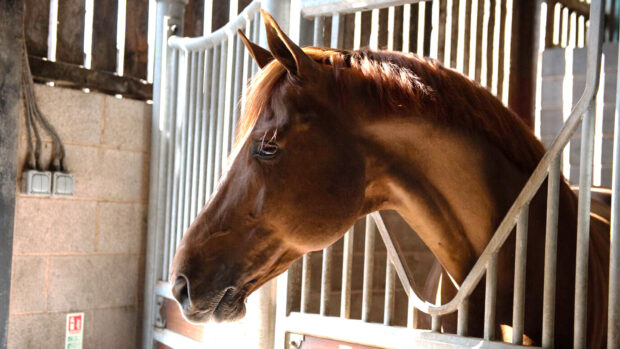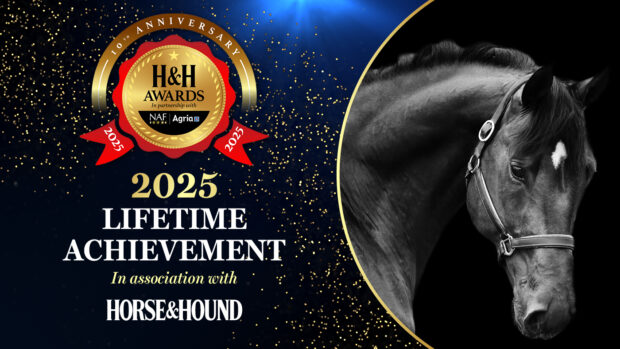Promotional Feature with NAF
by Kate Hore RNutr (animal) senior nutritionist at NAF
A question we’re commonly asked is ‘is it safe to compete on?’
How do you advise riders correctly? There are two main considerations we have to look at: firstly does the product knowingly contain products that are not allowed for competition; and secondly, what are the chances that unknown contamination by a prohibited substance has occurred?
Some natural products, although not appropriate for competition, still have a role to play within equine welfare and therefore are still available as natural supplements. While herbs such as valerian, a natural sedative, are well known and rightly avoided, others are not so well known. Those particularly to be aware of include chilli pepper and devil’s claw.

NAF undertake strict quality control operations and retain samples of all raw ingredients and finished products
For all disciplines, besides racing, the FEI prohibited substances list is followed, and there is an online searchable database which allows you to check the products you’re advising. The database can be found at here.
Simply check the label and input the ingredients into the search bar. As an example if we search for ‘Glucosamine sulphate’, used in quality joint supplements, you get a negative result, i.e. ‘Your search returned no results.’ However if we search for valerian we get :-

For either result, if you’re in any doubt check with the product’s manufacturer who should be able to give you a clear answer.
Devil’s claw was added to the list of prohibited substances in January 2016, as the FEI recognised the active constituent, harpagoside, to be a natural anti-inflammatory. However, this doesn’t mean it doesn’t still have its uses, and devil’s claw products are great for maintaining comfort in the joints of older or retired horses. Of course it does mean that competing horses should not be fed devil’s claw products. If competition horses are on a yard we’d advise keeping any devil’s claw products in the medicine cabinet and well away from feed, to avoid any confusion.
Don’t forget to also check applications, as it’s not just through feed or supplements that riders can fall foul of the rules. One high profile case at the Athens 2004 Olympics saw Germany lose its team showjumping gold medal as one of their horses had a positive result after a topical rub had been used on the horse.

Mixing powders in the NAF Factory is a complex operation
BETA NOPS
Luckily there is such a scheme that competitors can trust. BETA (British Equestrian Trade Association) working in combination with globally recognised quality audit bodies launched the BETA NOPS Code in 2009. This is an assurance scheme to reduce the risk of accidental contamination by naturally occurring prohibited substances (NOPS). Those prohibited substances they are particularly looking for include the following, although please note this is not an exclusive list (source in brackets).
- Caffeine – (coffee)
- Theobromine – (chocolate)
- Theophylline – (tea)
- Morphine – (opium poppy, Papaver somniferum)
- Hyoscine – (nightshade, Datura)
- Hordenine – (germinating barley)
- Atropine – (nightshade – Atropa belladonna)
- Nicotine – from tobacco
The BETA NOPS Code ensures all materials used are risk assessed, all suppliers are carefully chosen and all manufacturing processes are carefully controlled to minimise the risk of NOPS contamination from farm to shop. Here at NAF we go above and beyond, and check every batch of every raw material and every end product, taking clean sport very seriously.
Checking that any feed or supplement for competition horses and ponies carries the NOPS logo should reassure owners, producers and trainers that everything possible has been done to minimise the risk from accidental contamination.
What can you do?
Owners, riders and producers have their own role to play in feed safety for competing horses. Look back at the list of NOPS and you can see how ill-advised it would be to enjoy a cup of coffee and a chocolate biscuit in the feed room!
Anyone handling feed for competing horses should be aware of the risks and take suitable precautions such as keeping your own snacks away from horse feed, keeping any medications strictly separate and cleaning buckets after every use. For further information how you can reduce the risk on your own yard, see the BETA guide to avoiding prohibited substances online.

Care should be taking when mixing feeds to avoid contamination



